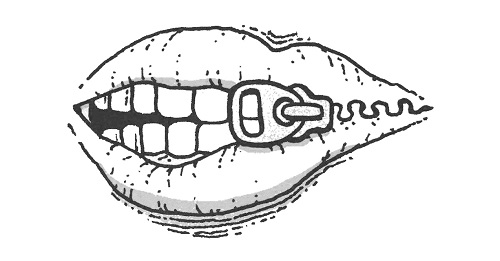FWP:
SETS == HERE/THERE; PARALLELISM
As Nazm observes, the extreme parallelism of structure is a real charm in this verse; it is highlighted by the strong internal rhyme in the first line. The lover and the beloved are not even identified: it's 'over that way' and 'over this way' in the first line, and 'by that one' and 'by me' in the second line. The beloved and the lover are thus balanced like bookends: similar, repeatedly juxtaposed-- yet for that very reason eternally unable to come together. There's no similarity without difference, no comparison without contrast; our minds bounce around among the (im)possibilities.
But what is it that isn't, or even cannot be, asked by the beloved? And what is it that isn't, or even cannot be, spoken by the lover? The commentators generally arrange a particular little scene between the non-asker and the non-replier. But in fact the possibilities are wide open. For bad-gumānī can have a whole range of meanings other than a suspicion of neglect: it can refer to a generalized negative 'suspicion' of any kind, or even to 'pride' or 'haughtiness' itself, with no particular thought-content (see the definition above). And the idea of 'asking' needn't even refer to a serious question put to the lover; it can also refer to a polite inquiry about someone's well-being or health, as in {71,9}.
Similarly, the lover's inability to speak may refer not merely to an inability to answer some one particular (non-asked) question because of physical weakness, but also to a more broadly-described state: the lover may be inhibited or rendered 'unable' or 'powerless' by respect, shame, strong emotion, general tongue-tiedness, the presence of other observers, etc. Compare the lover's complexly-motivated inability to communicate in {115,7}.
Note for grammar fans: The colloquial use of the passive in the second line, which is called the 'passive of impossibility', is also worth noting. Literally, the meaning is just declarative: '[something] is not asked by that one; [something] is not spoken by me'. But colloquially, the sense is that of a very strong impossibility: 'X is not done by me' means 'I absolutely cannot and will not do X', or 'X is just not going to happen'. Other such examples in this ghazal, for which the rhyme is very conducive: {205,6}, {205,7}, and {205,8}; it forms a chief charm of these verses. The 'passive of impossibility' is very often made from non- ne verbs; this versatility too serves to set it apart in its special idiomaticness.
When I first traveled in India, one of my worst problems
was an inability to convince generous hosts that I was not being coy or polite--
I truly, absolutely, positively, did not want, and could not eat, any more
food. My Hindi teacher advised me to say politely but firmly, mujh
se khāyā nahīñ jāʾegā . That often did the trick, and
taught me to value the 'passive of impossibility'. (Since then, however, I've learned
an even better formula, which you may someday be grateful for, dear reader: ḍākṭar ne manā kiyā , if accompanied by a sickly
and ominous expression, works infallibly.)


Nazm:
That is, from suspiciousness she considers my claim of love to be false, so that she doesn't ask about it. And I, in my love, am unable/powerless, so that I cannot speak to her. Through the similarity of the structure and the comparability of the words, he has created much beauty in the verse. (231)
== Nazm page 231